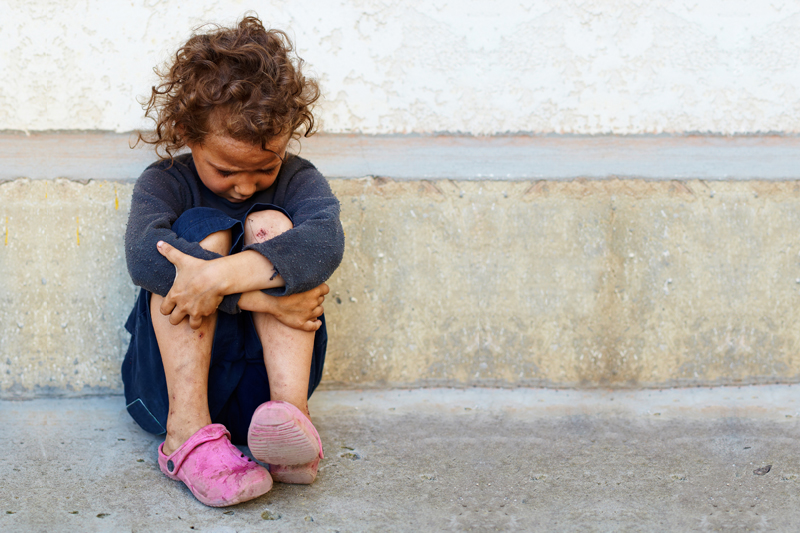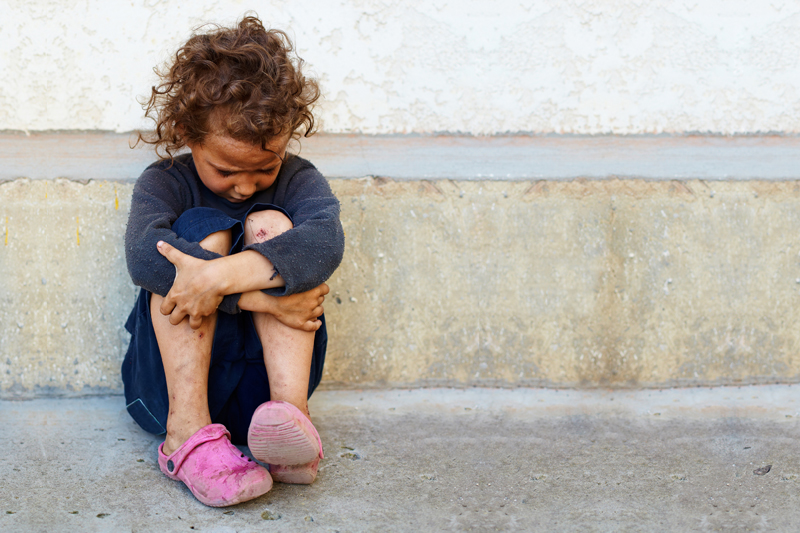Running Away in America

Everyday a child chooses to leave home and go out on his or her own. National statistics estimate 1.3 million kids, ages 10-18 will runaway from their living situation this year alone. Some find friends to live with or simply live on the street. The number of runaways tends to increase in the summer, when kids are not going to school and may have little or no supervision.
The National Runaway Switchboard is a hotline for runaway kids who decide they do not want to be out on their own quite yet. The number one reason children runaway from their living situation is parental-child conflict. As children develop into teenagers, they begin to test the boundaries with those closest to them. If parents are absent or not involved in a child’s life the increasingly challenging question of their authority may not be expected and they may respond negatively to what is normal adolescent behavior.
All children need and crave consistency. Children need to know who is in charge at home. The person in charge should be the parent, not the child. Many parents expect they can be their child’s best friend, yet to effectively parent a child this is not possible. You must be a parent first, a friend second. Children need to know how to respect those who are taking care of their needs. Through consistency and trust in a parent, a child learns to respect the mother, father and themselves.
Children runaway for many reasons and unfortunately there is no typical runaway. Often parents learn only after a child has eloped from the home setting that they were planning to leave and kept it secret. The grass is always greener on the other side of the fence or in one’s mind, yet many runaways realize only once it is too late that they have jumped out of the frying pan and into the fire. Other reasons children will leave home are the loss of a parent/sibling, a family move, major life changes and stressors from school or peers, physical, mental, emotional or sexual abuse.
In order to survive on the street many children end up working in prostitution or pornography rings with in a couple days. Often begin experimenting with drugs, alcohol and maybe drugged and raped while trying to survive. Many children will die alone on the streets victims of homicide, assault, drug overdoses and suicide.
The street or squats where kids live in groups are filthy and crowded. There are only a few ways to make money as a runaway, prostitution, pornography, stealing or dealing drugs. None of these jobs is stable or safe or guarantee job security, and most pose greater risks for further illness or disease. Sexually transmitted diseases are common in this population. Soon a child realizes that what they thought was the worst experience of their life at home holds no comparison to the horrors of the street.
Children do not have to runaway or if they have runaway, they still have the ability to choose to leave the lifestyle. Teachers, school counselors, a family physician, clergy person, doctor, school nurse, and parents, grandparents are all options for a trouble child to talk over their feelings of helplessness or hopelessness. There are also numbers children can call (free) if they feel they cannot speak to one of the adults listed above.
The National Runaway Switchboard is a 24/7 national hotline which is staffed by trained volunteers to help prevent a child from running away or to help the child get off the street and return home. They are also a suicide hotline. The numbers listed are all free calls from any phone. Please dial the one along with full number listed. If you are experiencing a medical emergency or need immediate attention, please call 911 for the fastest way to reach help.
National Runaway Switchboard and Suicide Hotline
1-800-621-4000
Homeless/Runaway National Runaway Hotline
1-800-231-6946
Rape, Abuse, Incest, National Network (RAINN)
1-800-656-HOPE (1-800-656-4673)
Adolescent Crisis Intervention & Counseling Nine line
1-800-999-9999
Teen Line
1-800-522-8336
Be Sober Hotline
1-800-BE-SOBER
Birthright
1-800-550-4900
Boys Town National Hotline
1-800-448-3000
Center for the Prevention of School Violence
1-800-299-6504
Child Abuse Hotline
1-800-4-A-CHILD (1-800-422-4453)
Drug Help National Help lines
1-800-378-4435
Emergency Contraception Information
1-888-NOT-2-LATE (1-888-668-2528)
Family Violence Prevention Center
1-800-313-1310
These numbers are available at multiple websites and by picking up a phone and dialing “O” zero for the operator. Please call if you need help. No one deserves to be alone or unsafe. Until we meet again, angels above you, angels below you, and angels all around you to keep you safe through the night!
The National Runaway Switchboard is a hotline for runaway kids who decide they do not want to be out on their own quite yet. The number one reason children runaway from their living situation is parental-child conflict. As children develop into teenagers, they begin to test the boundaries with those closest to them. If parents are absent or not involved in a child’s life the increasingly challenging question of their authority may not be expected and they may respond negatively to what is normal adolescent behavior.
All children need and crave consistency. Children need to know who is in charge at home. The person in charge should be the parent, not the child. Many parents expect they can be their child’s best friend, yet to effectively parent a child this is not possible. You must be a parent first, a friend second. Children need to know how to respect those who are taking care of their needs. Through consistency and trust in a parent, a child learns to respect the mother, father and themselves.
Children runaway for many reasons and unfortunately there is no typical runaway. Often parents learn only after a child has eloped from the home setting that they were planning to leave and kept it secret. The grass is always greener on the other side of the fence or in one’s mind, yet many runaways realize only once it is too late that they have jumped out of the frying pan and into the fire. Other reasons children will leave home are the loss of a parent/sibling, a family move, major life changes and stressors from school or peers, physical, mental, emotional or sexual abuse.
In order to survive on the street many children end up working in prostitution or pornography rings with in a couple days. Often begin experimenting with drugs, alcohol and maybe drugged and raped while trying to survive. Many children will die alone on the streets victims of homicide, assault, drug overdoses and suicide.
The street or squats where kids live in groups are filthy and crowded. There are only a few ways to make money as a runaway, prostitution, pornography, stealing or dealing drugs. None of these jobs is stable or safe or guarantee job security, and most pose greater risks for further illness or disease. Sexually transmitted diseases are common in this population. Soon a child realizes that what they thought was the worst experience of their life at home holds no comparison to the horrors of the street.
Children do not have to runaway or if they have runaway, they still have the ability to choose to leave the lifestyle. Teachers, school counselors, a family physician, clergy person, doctor, school nurse, and parents, grandparents are all options for a trouble child to talk over their feelings of helplessness or hopelessness. There are also numbers children can call (free) if they feel they cannot speak to one of the adults listed above.
The National Runaway Switchboard is a 24/7 national hotline which is staffed by trained volunteers to help prevent a child from running away or to help the child get off the street and return home. They are also a suicide hotline. The numbers listed are all free calls from any phone. Please dial the one along with full number listed. If you are experiencing a medical emergency or need immediate attention, please call 911 for the fastest way to reach help.
National Runaway Switchboard and Suicide Hotline
1-800-621-4000
Homeless/Runaway National Runaway Hotline
1-800-231-6946
Rape, Abuse, Incest, National Network (RAINN)
1-800-656-HOPE (1-800-656-4673)
Adolescent Crisis Intervention & Counseling Nine line
1-800-999-9999
Teen Line
1-800-522-8336
Be Sober Hotline
1-800-BE-SOBER
Birthright
1-800-550-4900
Boys Town National Hotline
1-800-448-3000
Center for the Prevention of School Violence
1-800-299-6504
Child Abuse Hotline
1-800-4-A-CHILD (1-800-422-4453)
Drug Help National Help lines
1-800-378-4435
Emergency Contraception Information
1-888-NOT-2-LATE (1-888-668-2528)
Family Violence Prevention Center
1-800-313-1310
These numbers are available at multiple websites and by picking up a phone and dialing “O” zero for the operator. Please call if you need help. No one deserves to be alone or unsafe. Until we meet again, angels above you, angels below you, and angels all around you to keep you safe through the night!

Related Articles
Editor's Picks Articles
Top Ten Articles
Previous Features
Site Map
Content copyright © 2023 by Erika Lyn Smith. All rights reserved.
This content was written by Erika Lyn Smith. If you wish to use this content in any manner, you need written permission. Contact Erika Lyn Smith for details.



